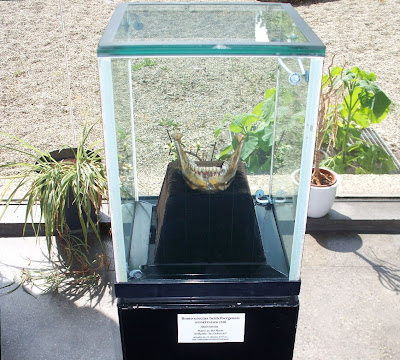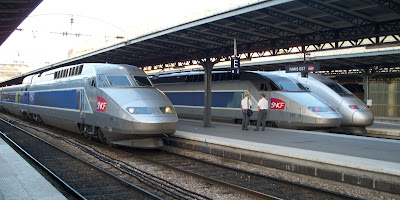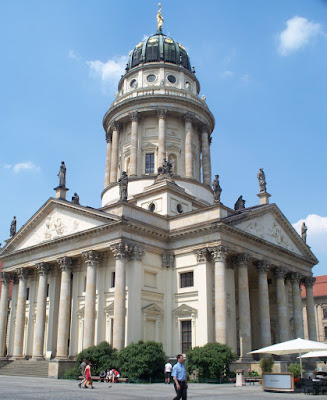I would love to count all the countries I have been to. I would love to count all that I have seen. It has been a treat for the mind. We tried food. We met people, from Korea, from Russia, from Senegal, from Chile, Mexico, Poland, Israel… Some like the German I met on my way to Swiss, knew more about India than me in certain respects (He wanted to discuss Amitav Ghosh’s works, and asked about my opinion on the fact that Jyoti Basu donated his organs after death). Diptarka once met a German who knew Hindi !! Somehow, everyone seemed to know of Bollywood and Shahrukh Khan, and Bachhan and Mera Naam Joker. At Venice we met an elderly American who discussed in details the economics of the world, and how everyone stands on loose ground. Again, on my way back from Hamburg, I had some adventures with members of a family from Karlsruhe, all established or budding artists...
Our makeshift arrangements for the nights, the multiple races against time, the elaborate planning that I involved myself in, getting lucky, getting unlucky -- experiences all. According to some rough calculations, I walked around 200 kms during this period. I must say I enjoy discovering a place by walking, both with comrades and alone. Thankfully, I never went out in a large group. It is not always - 'the more the merrier', as I learnt from some of my friends, who unfortunately learnt it the hard way.
Unfortunately like everytime, everything that has a beginning must have an end. I will miss opening bahn.de nineteen times a day. I will miss so many former strangers. I will miss the forest and the meadow in the midst. I will miss the snails, not the slugs. And so here I am writing the last post of this blog. Thanks to everyone who had been encouraging me to write, and of course to capture beautiful pictures.
So, that’s it. I hope to have the opportunity to better myself sometime again. Goodbye.






















































